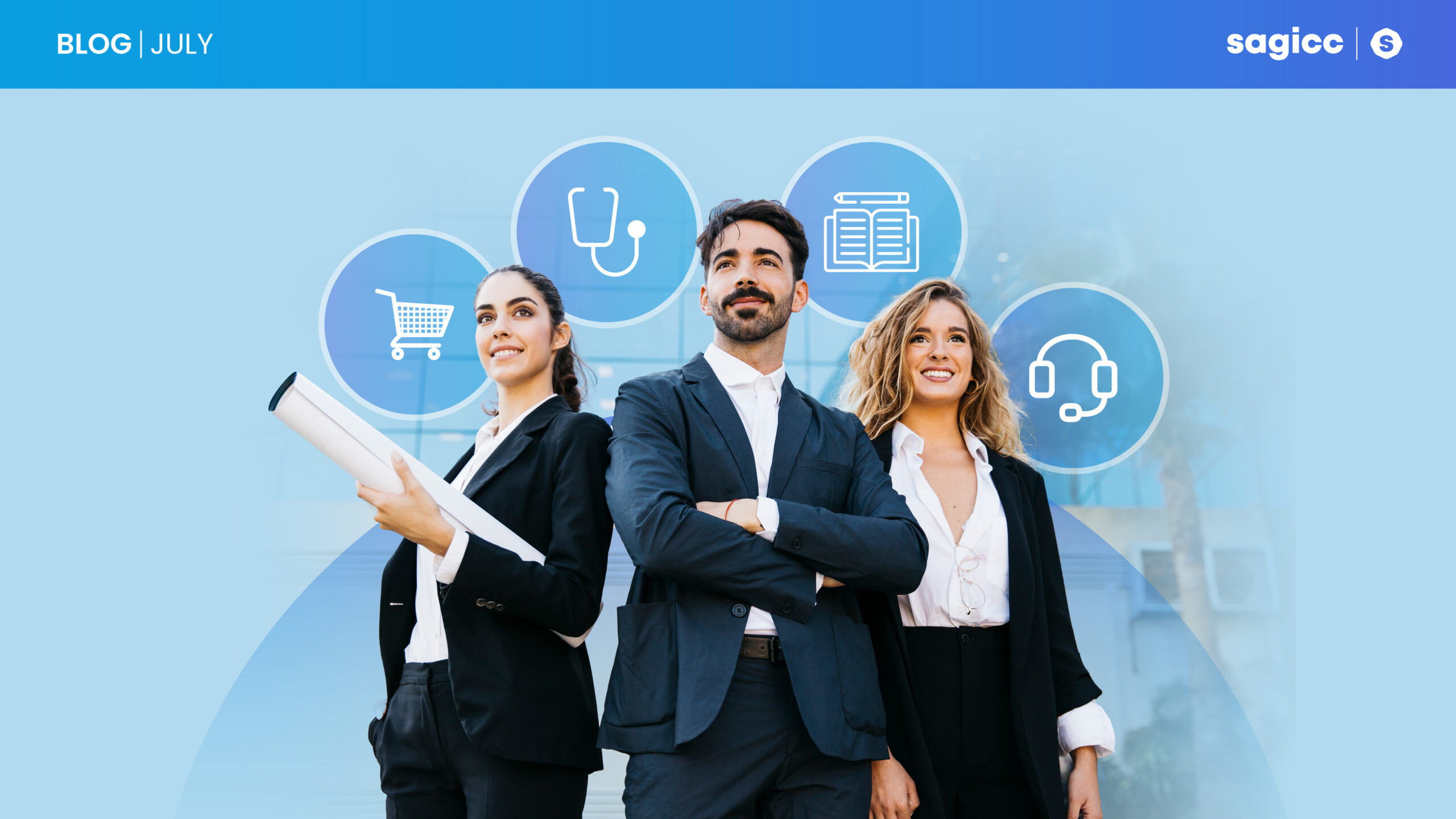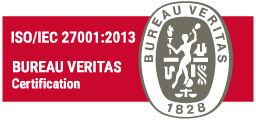Omnichannel has become a fundamental strategy for companies looking to improve the customer experience and optimize their operations. By integrating all communication channels and touch points into a unified platform, companies can offer a more consistent and efficient service.
Customer experience (CX) software technology is a significant innovation in the business world. This technology can improve the relationship between companies and their customers, allowing companies to offer a more personalized service and a unique and enhanced experience.
The concept of omnichannel has become one of the main pillars in different industries, integrating with other tools, such as Artificial Intelligence. This term is a strategy implemented by different companies with the purpose of offering an exceptional experience by integrating different channels.
The biggest challenge for companies is to make a difference in the customer service experience. Customers always expect quick interactions or responses, which means that companies have to adapt to new technologies.
It is crucial to understand why implementing omnichannel customer care software is vital for companies. This type of software allows organizations to manage all customer interactions from one place, improving operational efficiency and customer satisfaction.
Benefits of omnichannel
- Improve Customer Experience: Customers can communicate through their preferred channel, be it email, chat, social networks or telephone, and receive a quick and consistent response. This ease of access to different channels strengthens the customer-company relationship, generating a more personalized experience.
- Increased Operational Efficiency: Customer service agents have access to a complete history of interactions, allowing them to resolve issues quickly. This not only reduces response time, but also reduces agent workload, allowing them to handle more cases more efficiently.
- Analytics and Metrics: Companies can collect valuable data on customer interactions, identifying trends and areas for improvement. This analysis provides critical information to adjust marketing and service strategies, continually improving the quality of care.
- Customer Loyalty: A positive customer service experience fosters customer loyalty and retention. Satisfied customers are more likely to repeat their purchase and recommend the company to others, becoming brand ambassadors.
Implementing omnichannel care software is an investment that offers significant long-term returns, establishing a solid foundation for excellence in customer service and operational efficiency.
But how does omnichannel impact different industries?
Healthcare
The healthcare sector is constantly looking for ways to improve the patient care experience. So technology plays an important role in delivering results. Patient care is of vital importance in this sector, because it is dealing with the life and health of many people, and this experience impacts many areas of the organization.
Many of the companies in the health sector have problems to have statistics and compliance indicators for auditing entities. Another challenge is to achieve the integration of processes in a single place, they do not have an efficient and agile scheduling platform to provide their patients.
In different countries there are strict legal regulations on the quality of patient care, because if they do not have a very good customer management, they could be sanctioned.
Healthcare systems often use multiple platforms for managing patients, medical records and appointments. The fragmentation of this data can make it difficult to create a unified view of the patient, which is essential for providing personalized care. This results in delays in user or patient processes and repetitive, manual processes.
The protection of personal and healthcare data is critical. Data breaches can have serious consequences, both legal and patient trust, so security must be a top priority.
In addition, healthcare staff must be trained to use new technologies and provide consistent service across multiple channels. The adoption of new tools may require a significant cultural shift within healthcare organizations, which can traditionally be reluctant to change.
According to one study, 77% of patients prefer to choose how they communicate with their healthcare provider, and 41% would switch providers for a better digital experience. This underscores the importance of offering multiple communication channels to meet patient expectations.
Healthcare organizations that have implemented omnichannel solutions have seen a 30% reduction in response time and a 20% increase in patient satisfaction. The ability to respond quickly to inquiries and provide accurate information in real time significantly improves the patient experience.
In healthcare, omnichannel not only improves operational efficiency, but also plays a crucial role in improving clinical outcomes by facilitating smoother and more effective communication between patients and healthcare providers. Remember that, if you implement digital tools in your organization, you will be able to improve the first contact that users have, you will be able to receive them by providing information that interests that specific person, making the patient feel that this accompaniment is personalized.
Education
Implementing omnichannel in the education sector also presents significant challenges because educational institutions must serve a wide range of users, including students, parents, faculty and staff. Each group has different needs and expectations, complicating the design of an effective omnichannel strategy.
Not all users have equal access to the technology needed to take advantage of digital channels. The digital divide can create confusion in the educational experience, negatively affecting those without adequate access to the Internet or technological devices.
Some educational institutions may resist changing traditional methods of communication and teaching. The adoption of new technologies may be viewed with skepticism, requiring significant investment in training and development of digital competencies.
65% of higher education institutions have implemented some level of omnichannel in their customer service and communication. This demonstrates a significant movement towards modernizing educational interactions, improving accessibility and communication efficiency.
Institutions adopting omnichannel strategies have seen a 25% improvement in student-faculty communication and an 18% increase in parental engagement. The ability to provide information and support through multiple channels strengthens the relationship between the educational community and enhances the learning experience.
BPO
The BPO sector is the business process outsourcing industry, and faces its own challenges in adopting omni-channel. Many BPO providers must integrate and manage systems for multiple clients, each with their own requirements and platforms. Customizing the omnichannel solution to meet the specific needs of each customer can be a complex and challenging process.
For this reason, ensuring that all BPO agents are trained and providing consistent service across different channels is crucial. Continuous training and quality monitoring are essential to maintain high service standards.
Omnichannel solutions must be scalable to handle large volumes of interactions without neglecting service quality. The ability to adapt to sudden increases in demand and efficiently manage resources is critical to success in the BPO sector.
BPO companies using omnichannel solutions report a 25% reduction in call handling time and a 15% increase in agent productivity. This demonstrates how omnichannel can gradually improve operational efficiency, allowing companies to handle more interactions with the same resources.
Omnichannel in the BPO sector is a powerful tool to improve operational efficiency and customer satisfaction, allowing companies to offer a high quality service at a reduced cost.
Retail
The retail sector is perhaps one of the most advanced in omnichannel adoption, but it still faces several challenges.
Integrating inventory systems to deliver a consistent shopping experience across all channels is complicated. Synchronizing inventories between physical stores, online stores and other sales channels is critical to avoid problems such as overselling or out-of-stocks.
Consumers expect personalized experiences, which requires the use of advanced data and predictive analytics. The ability to offer personalized recommendations and targeted promotions based on customer behavior is a key differentiator in the competitive retail market.
73% of consumers use multiple channels during their purchase process, and those who interact with at least three channels are more loyal and 23% more likely to make repeat purchases. The ability to deliver a consistent and satisfying experience across all channels strengthens the customer relationship and encourages repeat business.
If you want to learn more about omnichannel in retail, learn more here.
You may be wondering which platform integrates everything that each sector needs, well, here is the solution.
Sagicc
Sagicc is an omnichannel customer care platform that stands out for its ability to centralize and optimize customer care across multiple industry sectors. Sagicc allows companies to integrate multiple communication channels, such as phone, email, chat, social media and SMS, into a single unified interface. This not only facilitates interaction management, but also improves operational efficiency and customer satisfaction.
In the retail sector, Sagicc enables consistent management of inquiries and purchases, providing a seamless customer experience both in physical stores and online.
In the healthcare sector, Sagicc ensures that patient interactions are secure, consistent and personalized, while complying with data protection regulations.
For educational institutions, Sagicc improves communication between students, parents and teaching staff, offering comprehensive and accessible support.
In Business Process Outsourcing (BPO), Sagicc’s ability to handle large volumes of interactions and automate repetitive tasks is crucial to increase productivity and reduce operational costs.
In short, Sagicc adapts to the specific needs of each industry, providing robust tools to improve the customer experience and optimize customer service processes. Sagicc enables these companies to set specific CX objectives for their customers, such as increasing customer satisfaction, increasing loyalty and reducing total cost of services. Companies improve their communication between themselves and their customers, as well as helping to increase revenue, enhance their brand image and ensure short-term success.
Sagicc is the perfect tool for your company, don’t wait any longer!




